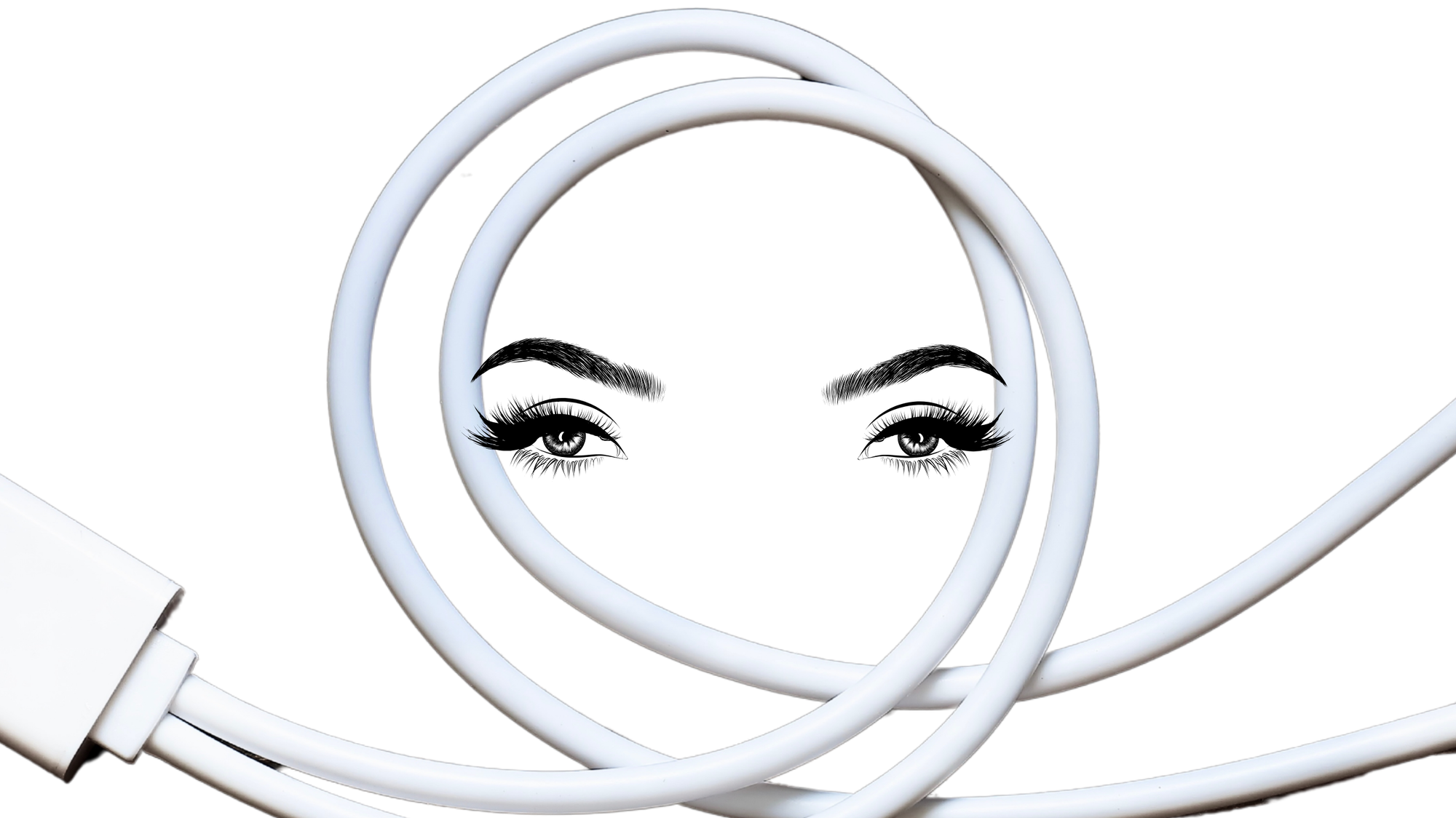
World Suicide Prevention Day: four resources to help save lives
Understand. Read. Learn. Share.
Trigger warning
Contains references to suicide. Please see helpline information at the end of the piece.
Tomorrow, September 10, is World Suicide Prevention Day.
"I hear you" is among the most popular refrains in mental health and suicide prevention circles. It is powerful in its simplicity and honesty, offering no easy solution to whatever's wearing us down but the feeling that someone's listening without judgment – which is often everything we need to hear.
Ironically, on World Suicide Prevention Day and World Mental Health Day, which follows exactly a month later, it has become increasingly difficult to hear each other in the din of panels and webinars.
This year my goal is to withdraw from this noise. Instead, I am sharing this brief edition with all of you, containing resources that I have found helpful in my own journey through suicidality and as a suicide prevention advocate.
I have organised these resources under four broad heads: Understand, Read, Learn, and Share. This should not be seen as some kind of crash course on suicide prevention. Instead think of it as guide rails that can help you navigate this complex topic.
Why should you care? Well because suicide prevention is not someone else's problem (I could produce all manner of data to show the scale of the suicide crisis, but is that really necessary?). And because there is something that each one of us can do.
If you find this task daunting, take a break and come back to it whenever you feel ready.
If you still feel overwhelmed, don't judge yourself. It's okay. I hear you.
Understand
Sneha is a volunteer-run suicide prevention NGO. It was founded in Chennai in 1986 by one of the world's foremost suicide prevention experts Lakshmi Vijayakumar, who also played a big role behind September 10 being declared World Suicide Prevention Day.
(She is also a mentor to me, and one of the most compassionate human beings you can ever hope to meet. Her encouragement was the only reason I could gather the strength to contribute to a Lancet Psychiatry paper on suicide prevention as a lived experience expert. Thank you Ma'am.)
Below, I distill four suicide prevention insights from the book Sneha: A Link with Life, which summarises the organisation's core principles and lessons. I don't have a link to the book, so I am sharing photographs of the relevant pages here.

Befriending
At the heart of Sneha's approach to suicide prevention is the idea of 'befriending'.
What is befriending, and what separates it from counseling or therapy? More fundamentally, how is the word 'befriending' different from 'friend'?
(Note: The book uses the male pronoun here; hopefully Sneha will revise this in a future version.)
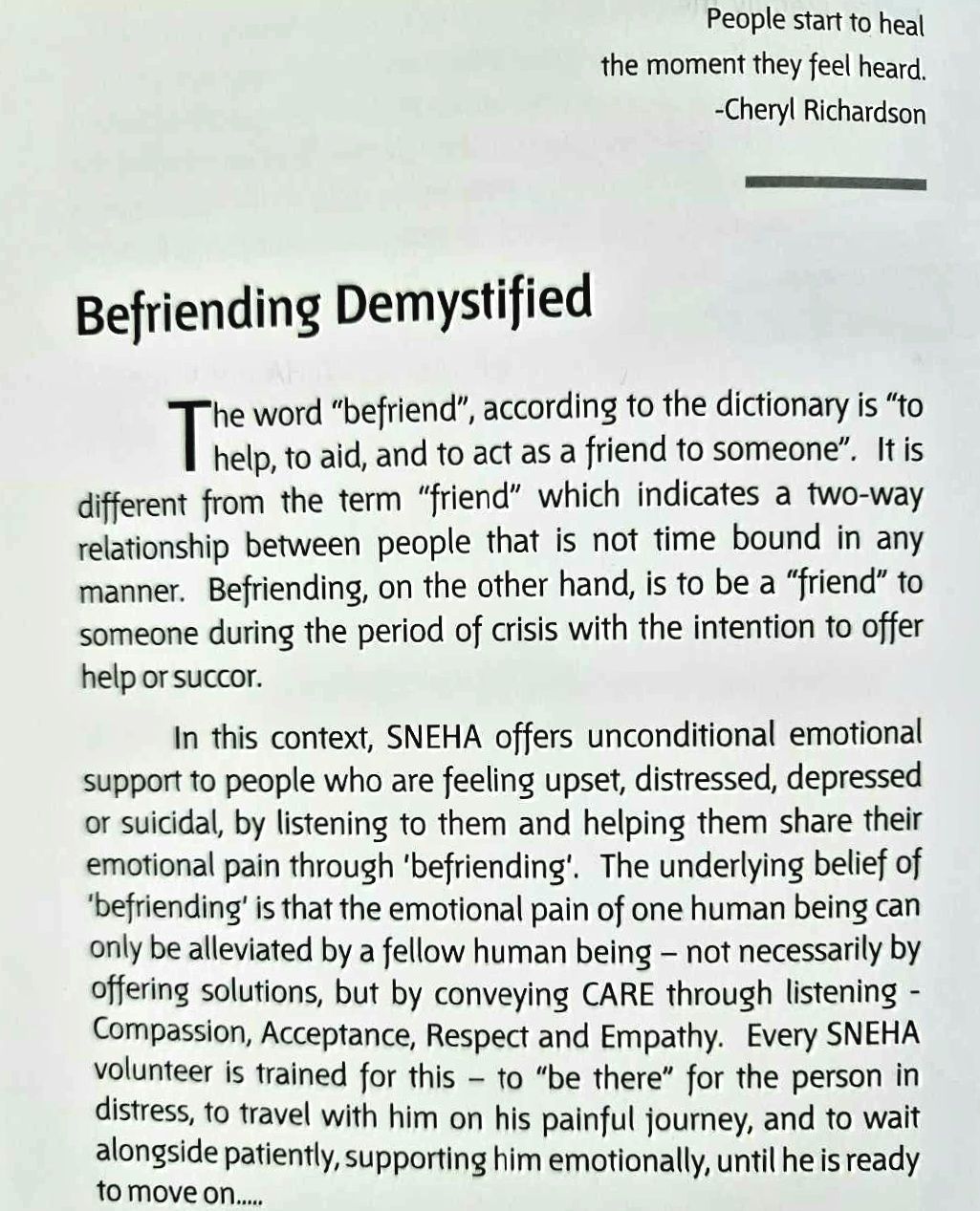
Feelings v situations
A core tenet of suicide prevention is that you don't have to be an 'expert' to save lives. You don't need to 'know' too much about a person's life situation, or have any way of changing it, to be able to help them in a moment of acute crisis.
'Situations' are different. But 'feelings' are universal.
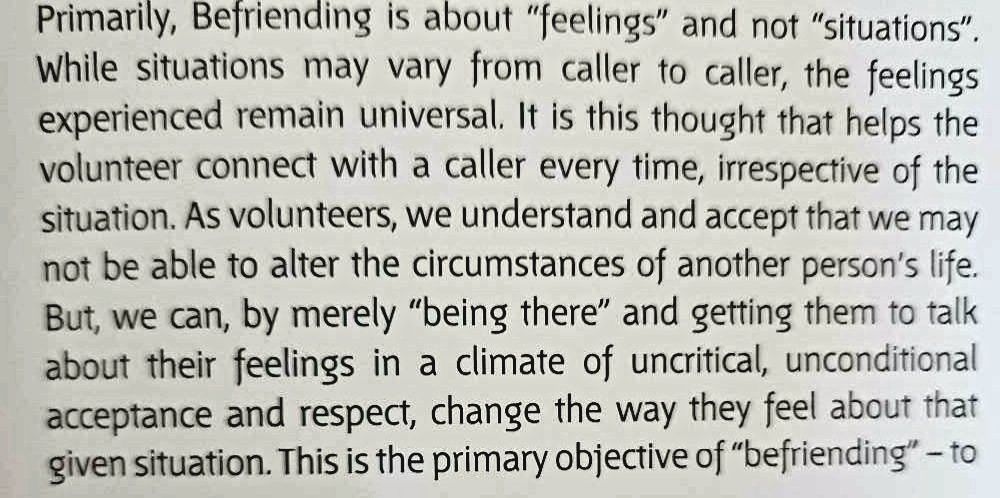
The power of the ordinary
To be a Sneha volunteer, one must be 'ordinary'.
Ordinary people don't sit on judgment. They don't itch to offer solutions. They don't claim to know all the answers.
Ordinary people can make extraordinary listeners.
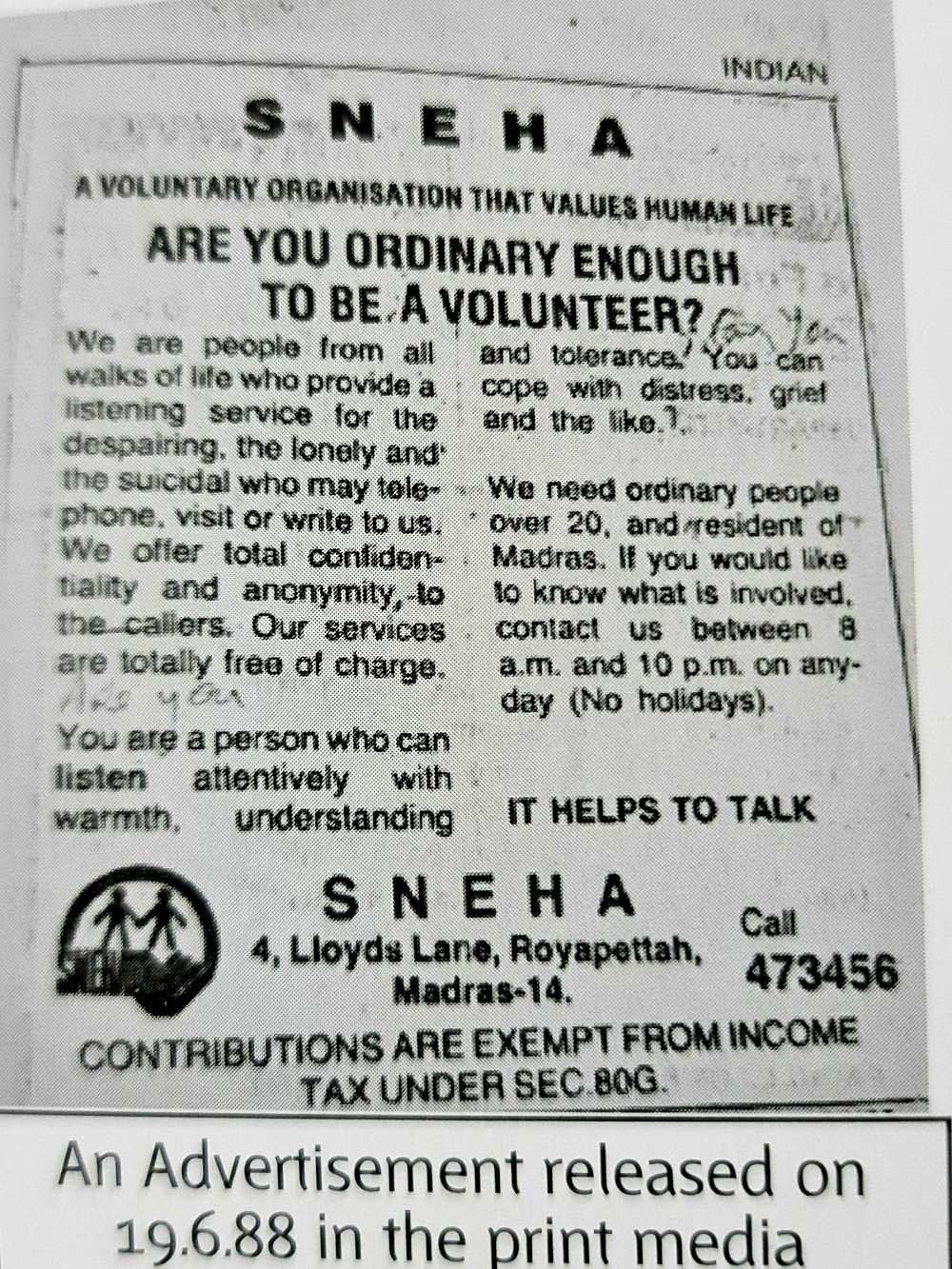
An everyday battle
At the cost of regurgitating a truism, we can't talk about suicide prevention just one day of the year. Since its launch in 1986 up until the lockdown, Sneha hadn't closed its door even a single day. As individuals we cannot and don't have to meet those standards, but what are the little things we can do?
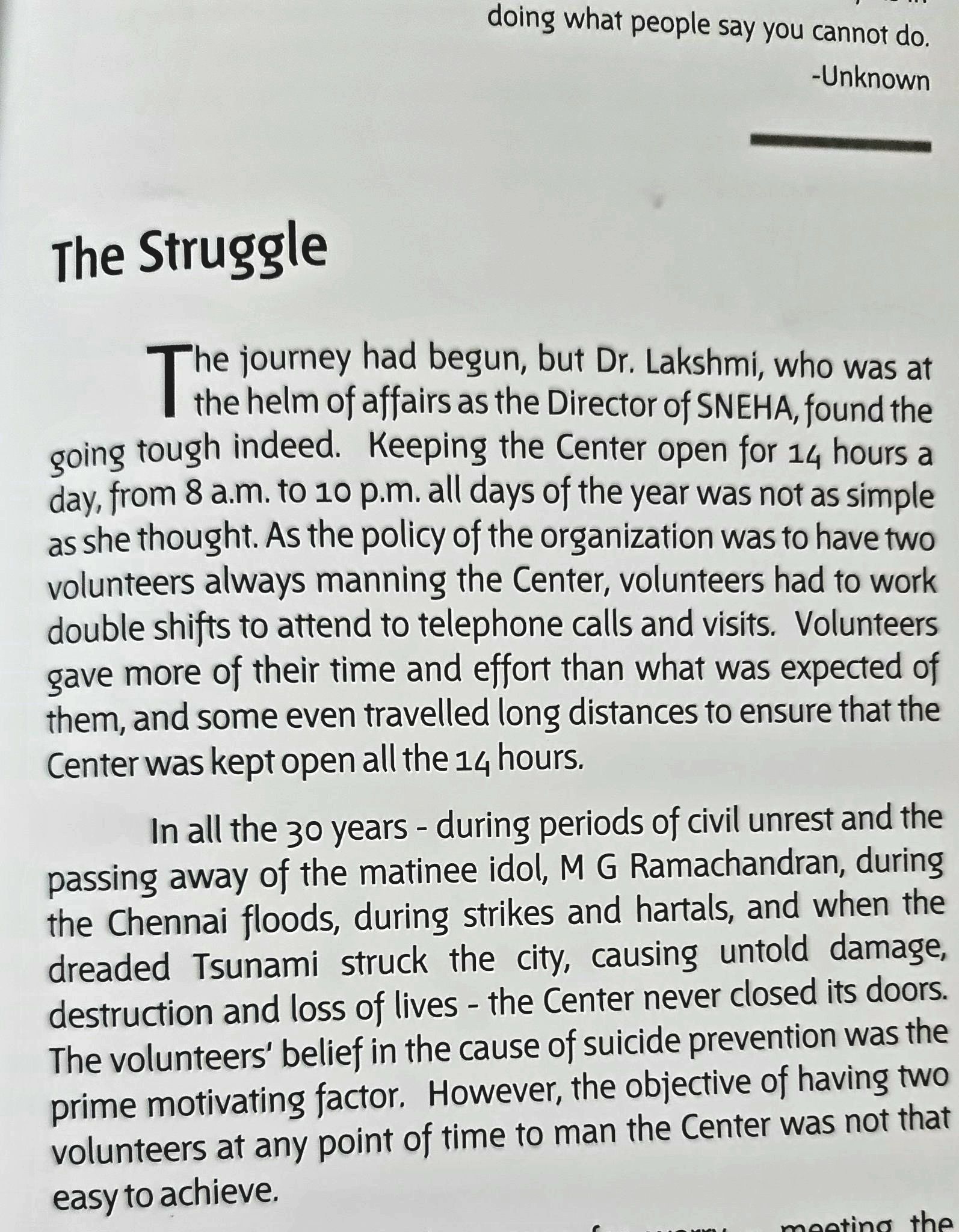
Read
Amrita Tripathi, Abhijit Nadkarni, and Soumitra Pathare's book Life Interrupted: Understanding India's Suicide Crisis addresses a long-running plaint: that literature on suicide prevention is predominantly western, and that India lacks a book that is at once accessible and rigorously researched, evidence-based and with a compelling narrative.
Here's an excerpt from the book's description on Amazon:
"In India we tend to have a fatalistic attitude towards suicide, tending to believe that nothing can be done to prevent it, focusing only on the politically volatile issue of farmer suicides, or periodically, when there is a death by suicide of a prominent personality or suicides in vulnerable groups (for example, students especially after board exam results).
There is a hue and cry in the popular press with opinion makers demanding immediate action. The resulting knee-jerk reaction from policy makers is to offer some immediate solutions which have little evidence of success. After a while, everyone forgets the issue, until the next such event and the cycle repeats itself.
This book aims to present evidence-based strategies to tackle suicide, using interviews, case studies, and conversations that lay readers can make sense of."
A lot of important data, reflection, and hope in this slim edition. Go buy it. Better still, gift it.
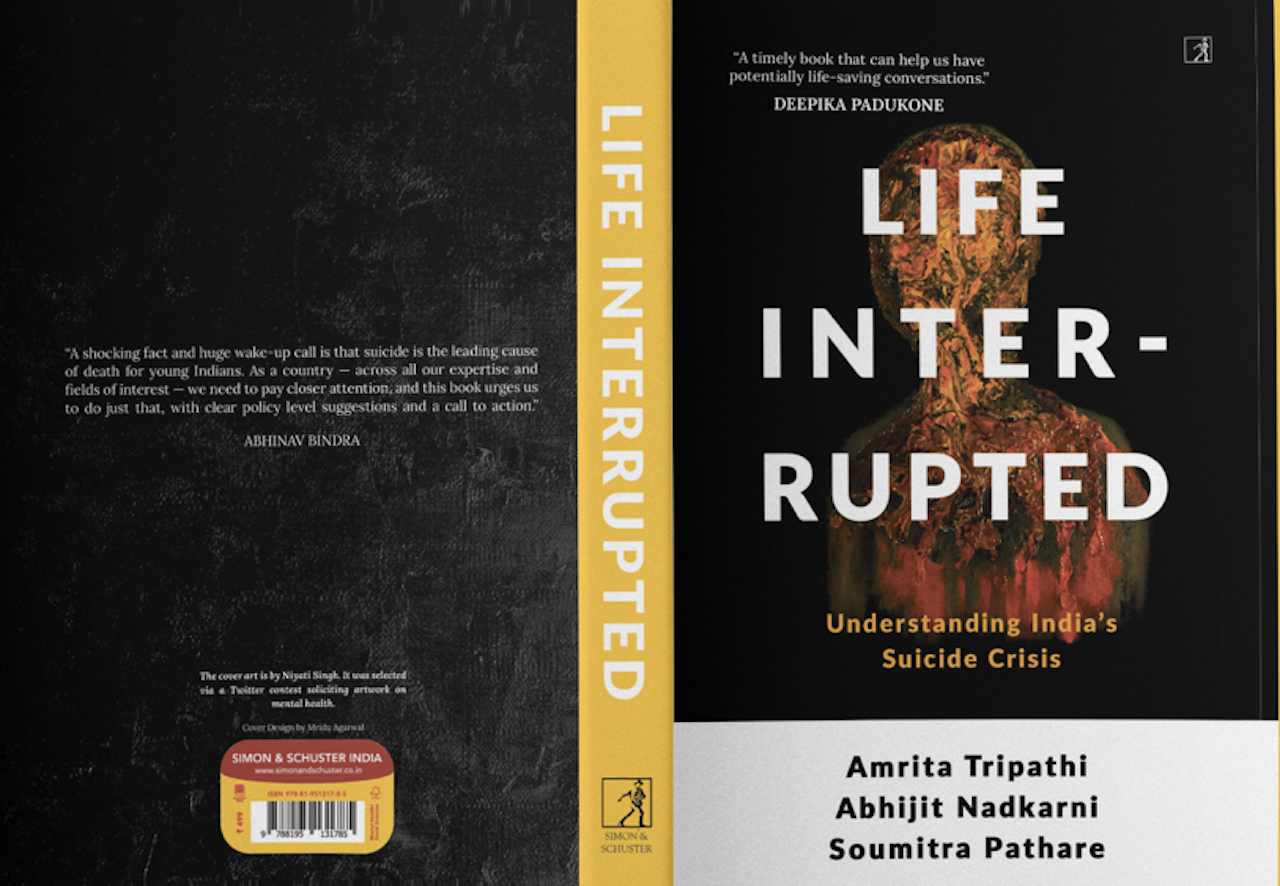
Learn
One of the least appreciated aspects of suicide prevention is the crucial impact of media coverage of suicide.
If you are a journalist interested in learning how the stories we tell about suicide can either put vulnerable people at risk or give them hope – and want practical tips and techniques to do a better job – you cannot go wrong with this one-of-a-kind online course.
Developed by India's Centre for Mental Health Law & Policy, the course includes inputs from journalism students, media professionals, suicide prevention experts, and people with lived experience. It is in English. And it is completely free.

Share
Over the years I have been lucky to write dozens of articles and speak on countless panels and seminars on the subject of suicide prevention. But not too many of them gave me the sense of satisfaction I got out of the series I recently published on Sanity, with the support of Mariwala Health Initiative.
My goal was to tease out stories and inspiration from suicide prevention activists and researchers in low- and middle-income countries. And I found them in spades. Here are some samplers.
Yeshim Iqbal, founder of Kaan Pete Roi, Bangladesh's first suicide prevention helpline, on how to motivate volunteers:
One thing that we swear by is food. “Always have some food in your office” — this is one of my mother's many profound contributions to Kaan Pete Roi. You are dealing with 18-year-olds. They just rode a bus from class to get here. You absolutely must have food ready. So yeah, put food in the budget.
Benny Prawira Siauw, suicidologist and founder of Into the Light Indonesia, a community-driven suicide prevention movement, on dismantling stereotypes:
"You can’t go by the appearance of individuals and say that they don’t look ‘depressed enough’ to be suicidal. I think the only way out of these attitudes is to embrace lived experience. Listen to people. And then maybe you can learn more about what’s really driving them to extreme measures."
Researcher Daiane Borges Machado on why suicide is not just a 'mental health' problem, and why cash can be a better 'medicine' than antidepressants:
"How can we expect people who have always eaten differently and have had different access to education, health, etc, to perform all the same in life?"
Every story of the series is free to read. No need to register. Please share liberally.
Need help? This website provides contact details of free helplines around the world.
Full disclosure: I am quoted in Life Interrupted and have contributed to the suicide reporting course. I have no commercial interest in either of them.

